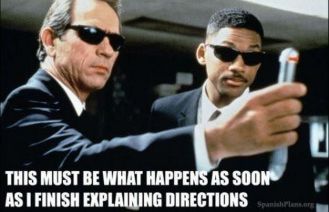After reflecting on the reporting process of a local reporter regarding a story of a teacher’s social media comments, I am still uneasy.
I still have a hard time comprehending the rationale for publishing this story about a teacher’s tweets. The reporter provided a few possible reasons in his previous responses on social media: 1. to get her account shut down, 2. to appease an upset parent or 3. because she deserved it. By the way, none of these pass the journalistic integrity test. Seemingly as a response to my previous post, the Valley News Live reporter who covered the issue, Cornelius Hocker, had no problem explaining his rationale on his blog. Even though he declines to address his disregard for ethical, journalistic practices, it seems he has no problem sharing his feelings about me.
There is a lot of information to unpack in Mr. Hocker’s rationale, but the scariest fact is that he is using other, anonymous individuals on his public blog to attack the character of a public school teacher. Mr. Hocker admits that these are comments he received after publishing a poorly researched and one-sided “story.” This argument makes it difficult to use as justification for publishing in the first place, without conducting proper research.
Again, let me remind readers, I do not know the teacher in the news story even though we work in the same district. I am also not commenting on the actual messages. Instead, I’m evaluating the obvious omission of clear, journalistic integrity.
My primary concern about the disregard for ethical journalism practices is the precedent Mr. Hocker sets. This sets an example for all aggravated individuals who want vindication against a public educator or coach. In my career as a public school teacher, coach, adviser, etc., I’m sure there are people who have disagreed with my practices, misinterpreted my verbal or nonverbal responses or simply did not like me. Actually, I know there were – it’s one reason I was fired. I like to think I’m not that different from other teachers in this regard, but I could be wrong. When a “news” report can be published with simple hearsay from anonymous individuals, we have a major issue that makes public educators everywhere more vulnerable.
I am not licensed as a special needs teacher, but I work with a wide variety of special education and regular education students each day, similar to almost all teachers in a public school setting. As we always strive for inclusiveness in education, it is important to avoid differentiating between students with needs and regular education students. Mr. Hocker has made it clear on several occasions that this teacher’s area of instruction is a primary focus of the story.


The fact that Mr. Hocker uses the special education categorization to garner more attention to his story is disheartening.
Note: Mr. Hocker also uses an interesting choice of words with “busted” and “caught”. This should not be the approach when evaluating a private individual who is the subject of a news story stemming from anonymous sources.
In my opinion, if a person believes the teacher’s comments are not appropriate, they should be considered inappropriate for all students. Differentiating based on educational status is as dishonorable as publishing material received in an anonymous envelope without vetting that information.
If the comments are deserving of a news story, the fact she works with special needs students should not be the determining factor for making the tweets offensive. The reporter uses the special needs angle to increase clicks, not out of concern for any specific student. Actually, instead of referring to students, Mr. Hocker used appeasing a parent as rationale.
Using the special needs angle and connecting it to a single parent’s criticism of a special education teacher to make this more “clickable” reveals that he is operating outside the ethical boundaries for professional journalism.
I question whether the reaction would be the same without the emphasis on the instructional specialty. You’ve probably seen some of these memes posted on social media. There is an entire site dedicated to teacher memes. These memes are extremely popular and frequently shared. These memes express a light-hearted perspective on the daily struggles public school teachers face.
The issue then becomes a question of subjective interpretation. Without considering the instructional area of the teacher, are these memes any different than the comments made by the teacher? There are memes that address overbearing parents, annoying student habits, and other common struggles educators face. If a person considered the special education teacher’s comments inappropriate, it would be interesting to see how that same person would react to these memes.
As teachers, we strive for inclusion and equality within the classroom environment. It should be no different in the public sphere. If comments or observations are offensive to an individual because they refer to a specific grouping of individuals, it is a direct contradiction to the basic moral argument that person would make. All students should be considered equal in and out of the classroom. Promoting any group as superior or inferior, especially for the sole purpose of earning “clicks”, does a disservice to those who work so hard to defend the inclusive standard.
Jeremy Murphy is a journalism and English teacher at West Fargo High School in West Fargo, North Dakota. This blog represents his observations from his professional growth in his 11-year career. In no way should this be mistaken for advice or any form of professional expertise. If you are looking for an expert in teaching, English and/or life, you are on the wrong site. You can follow Jeremy on Twitter at @mr_jmurphy or email him at jpmurphy@west-fargo.k12.nd.us.











Leave a comment